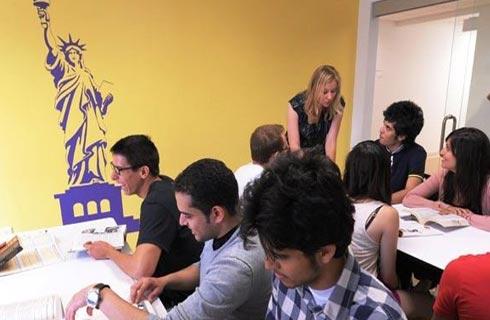犯罪学和社会学MA / PgDip / PgCert
MA Criminology and Sociology

学历文凭
Masters Degree (Taught)

专业院系
Sociology and Social Policy

开学时间

课程时长

课程学费

国际学生入学条件
Applications from candidates who have relevant professional experience in lieu of a bachelor degree will also be considered. All applicants in this category will be invited for interview.
If your native language is not English, you must provide satisfactory evidence that you have an adequate knowledge and understanding of written and spoken English:
IELTS: 6.0 (with no element below 5.5)
TOEFL iBT - 75 overall , (L-17, R-18, S-20, W-18)
IDP—雅思考试联合主办方

雅思考试总分
6.0
了解更多
雅思考试指南
- 雅思总分:6
- 托福网考总分:75
- 托福笔试总分:160
- 其他语言考试:Pearson PTE: a score of 56 (with no element lower than 51)<br>Cambridge English Test Advanced: 169 (with no element lower than 162)
CRICOS代码:
申请截止日期: 请与IDP顾问联系以获取详细信息。
课程简介
This MA in Criminology and Sociology combines two academic disciplines within the school. The course draws on the expertise of our criminologist and sociologist and explores the sociological context of issues in criminology.A broad range of criminology and sociology subjects are studied which develop knowledge and understanding of a broad spectrum of topics within this field including; crime, organisations and administrations in the field of criminal justice, the social causes and consequences of crime, social change and social structures, culture and identity and related issues.The broad yet specialised nature of this degree allows students to develop advanced and specialised knowledge alongside skills in criminological and sociological research.On completion of the course, students will be able to:Demonstrate advanced, specialised knowledge and skills across a range of criminology and sociology applications, including an understanding of community cohesion and social identities, of criminal behaviour, its causes and consequences, its prevention and the response by criminal justice agencies.Conduct empirical research projects. Students will have developed specialist research skills and critical thinking across a range of criminological and sociological areas and an understanding of the complex contexts in which criminologists and sociologists work.Demonstrate the ability to problem solve and reason scientifically, even in complex contexts using appropriate qualitative and quantitative skills, including identifying, formulating and solving social problems and problems related to crime. Students will have the ability to create, evaluate and assess a range of options, and apply ideas and knowledge to a range of situations.Demonstrate knowledge and understanding of advanced level theories and empirical evidence concerning crime, its causes and consequences, including the definition of deviant behaviour, public opinion, the media and fear of crime, political reactions to crime, support for victims, offender management and related topics.Demonstrate knowledge and understanding of advanced level sociological theories and sociological findings, related to topics like the functioning of public sector organisations, social stratification, political and social movements, social values, consensus and conflicts, culture, community and identity, the social function of law.CareersThe course prepares for a wide range of employment including:Law-enforcement agencies: the police, customs, the prison servicePublic administration: including crime prevention units, offender management, general administration, international institutionsPolitical associations, work for members of parliaments, for lobby groups related to the criminal justice system and to issues of social justice broadly conceivedResearch institutes, researching criminological and sociological issuesPaid jobs with charities working on providing housing, or working with juveniles at risk or prison leavers etcAcademic institutions such as universities
相关申请
 预科
预科 奖学金
奖学金 实习机会
实习机会 在校学习
在校学习 跨境学习
跨境学习 校园授课-线上开始
校园授课-线上开始 在线/远程学习
在线/远程学习
学校排名

世界排名401
数据源:泰晤士高等教育世界大学排名
关于班戈大学

班戈大学自 1884 年建校以来,一直致力于提供世界一流的教学和研究。班戈大学位于北威尔士,地理位置优越,适合希望体验充满活力的生活方式和令人兴奋的户外活动的学生。班戈大学有多种学科课程可供选择。该大学是北威尔士医学院的所在地,新设施有助于培训学生从事医疗行业的各种工作。该校还提供海洋科学等专业科学课程,并拥有自己的研究船--马多格王子号。班戈大学的学生在第一年(9 月入学)可享受住宿保障,并可选择加入 150 多个俱乐部和社团中,结识志趣相投的人,建立牢固的社会纽带,在学习之余享受乐趣。班戈大学卓越的课程设施和热情洋溢的教师团队有助于确保所有学生都能享受到量身定制的丰富学习课程。学生将受益于专业级的资源和学习空间,以及真正关心帮助培养下一代行业领袖的教学人员。斯诺多尼亚国家公园距离班戈大学近在咫尺,可以欣赏到壮丽的景色,可以散步,还可以尝试各种户外运动。在稍远的地方,学生可以乘坐火车方便地到达利物浦和曼彻斯特,以及北威尔士的其他旅游胜地,包括众多美丽的海滩,学生可以在课余时间去探索。
本校相关课程

威尔士历史博士/哲学硕士
学历文凭
Ph.D.
开学日期
课程费用总额


威尔士历史MA / PgDip
学历文凭
Masters Degree (Taught)
开学日期
课程费用总额


翻译研究博士/硕士
学历文凭
Ph.D.
开学日期
课程费用总额


实践翻译研究博士学位
学历文凭
Ph.D.
开学日期
课程费用总额


翻译研究(MA)
学历文凭
Masters Degree (Taught)
开学日期
课程费用总额


MSc Sustainable Tropical Forestry (SUTROFOR) (Erasmus Mundus course)
学历文凭
Masters Degree (Taught)
开学日期
课程费用总额

其他相关课程

国家土著研究中心哲学博士
 澳大利亚国立大学
澳大利亚国立大学学历文凭
Ph.D.
开学日期
课程费用总额


社会科学学士(荣誉学位)
 纽卡斯尔大学
纽卡斯尔大学学历文凭
Bachelor Degree with Honours
开学日期
课程费用总额


哲学博士(人文,艺术和社会科学)
 斯威本科技大学
斯威本科技大学泰晤士高等教育世界大学排名:201
学历文凭
Ph.D.
开学日期
课程费用总额


国际发展研究生文凭
 乐卓博大学
乐卓博大学泰晤士高等教育世界大学排名:251
学历文凭
Graduate Diploma
开学日期
课程费用总额


土著哲学博士
 南十字星大学
南十字星大学泰晤士高等教育世界大学排名:501
学历文凭
Ph.D.
开学日期
课程费用总额


国际贸易与发展硕士。
 阿德莱德大学
阿德莱德大学学历文凭
Masters Degree (Coursework)
开学日期
课程费用总额





















 英国
英国




